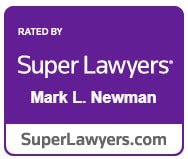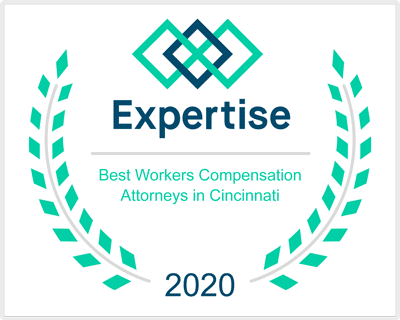Get The Help And Results You Need After An Injury
Home » Types of Workers’ Compensation Benefits » Permanent Total Disability
Ohio Permanent Total Disability
If you or a loved one has suffered an injury that resulted in permanent damage while on the job, you may be entitled to permanent total disability benefits in the state of Ohio. To see if you qualify, contact Mark L. Newman today for a private case evaluation.

What is Permanent Total Disability?
Permanent total disability is defined as the inability to perform sustained remunerative employment due to the allowed conditions in the claim. The purpose of PTD is to compensate injured workers for their lost earning capacity. When evaluating a PTD claim, the Industrial Commission considers several factors, including the injured worker’s impairments related to their injuries, age, education level, and work experience.
How Does Permanent Total Disability Work in Ohio?
The first step to pursue PTD benefits is to file an Application for Permanent Total Disability Compensation with the Industrial Commission. The application must be accompanied by medical evidence from a physician finding that the injured worker is permanently and totally disabled. The Industrial Commission will also schedule you for an exam on the issue of PTD. If the Industrial Commission doctor finds that the worker qualifies for PTD, the application will be granted. If not, the PTD application will be scheduled for a hearing before a Staff Hearing Officer. Injured workers may also file evidence from a vocational expert in support of the application.
The amount of PTD benefits you are able to acquire is based on the injured worker’s average weekly wage at the time of the injury. PTD benefits are paid bi-weekly for the remainder of the injured worker’s life. In addition to receiving PTD benefits, these workers may also be eligible for benefits from the Disabled Worker Relief Fund. DWRF is a separate benefit for PTD recipients who fall below the current cost-of-living level. The State will review each PTD claim and pay DWRF benefits if appropriate.
How Long Does Permanent Total Disability Last?
Unlike with permanent partial disability, which is paid out over a fixed number of weeks, compensation for permanent total disability is generally payable for life. However, an injured worker is not permitted to work in any capacity while receiving PTD compensation.
Why Do I Need an Attorney for Permanent Total Disability?
The PTD process is complex and the Industrial Commission approves very few applications. That is why it is so important that those seeking permanent total disability benefits have proper legal representation on their side. Having an attorney who is familiar with the Ohio workers’ compensation system can help ensure the worker in question receives the maximum benefit possible.
A skilled workers’ comp attorney like Mark Newman can help in:
- Gathering evidence to support claims
- Obtaining medical records
- Preparing and filing necessary documents
- Securing expert witnesses for hearings
- Presenting and providing compelling arguments at hearings
Contact Ohio Workers’ Comp Attorney Mark L. Newman Today
If you have a permanent disability due to a work injury or occupational disease that prevents you from working in any capacity, you may be entitled to permanent total disability benefits for the remainder of your life. Cincinnati workers’ comp attorney Mark L. Newman has the experience you need to protect your rights as a worker and secure the permanent total disability benefits you’re entitled to. To learn more about PTD or to schedule a consultation, give us a call at (513) 533-2009 or fill out our online intake form today.
Schedule A Consultation Today
- What to Do When You Are Injured at Work in Ohio
- Understanding the Workers’ Compensation Process
- Workers’ Comp Settlements
- Full Weekly Wage vs. Average Weekly Wage
- Types of Workers’ Compensation Benefits
- Permanent Partial Disability Benefits
- Permanent Total Disability Benefits
- Temporary Total Disability Benefits
- Vocational Rehabilitation and Living Maintenance
- Wage Loss Compensation
- Scheduled Loss Award
- Types Of Work Injuries
- Slip and Fall
- Repetitive Motion Injuries
- Shoulder Injuries
- Amputation Injury
- Back Injuries
- Knee Injuries
- Vision Loss
- Carpal Tunnel Syndrome
- Catastrophic Work Injury
- Auto Accidents While Working
- High-Risk Occupations for Workers’ Comp Injuries
- Construction Workers
- Factory Workers
- Nursing Injuries and Illnesses
- Work-Related Wrongful Death
- Workers’ Comp Lawyer Cincinnati
- What to Do When You Are Injured at Work in Ohio
- Understanding the Workers’ Compensation Process
- Workers’ Comp Settlements
- Full Weekly Wage vs. Average Weekly Wage
- Types of Workers’ Compensation Benefits
- Permanent Partial Disability Benefits
- Permanent Total Disability Benefits
- Temporary Total Disability Benefits
- Vocational Rehabilitation and Living Maintenance
- Wage Loss Compensation
- Scheduled Loss Award
- Types Of Work Injuries
- Slip and Fall
- Repetitive Motion Injuries
- Shoulder Injuries
- Amputation Injury
- Back Injuries
- Knee Injuries
- Vision Loss
- Carpal Tunnel Syndrome
- Catastrophic Work Injury
- Auto Accidents While Working
- High-Risk Occupations for Workers’ Comp Injuries
- Construction Workers
- Factory Workers
- Nursing Injuries and Illnesses
- Work-Related Wrongful Death
- Workers’ Comp Lawyer Cincinnati
Injury or disability?
Contact Us Now
Mark L. Newman Attorney at Law
3074 Madison Road Suite 2N
Cincinnati, OH 45209
Phone: (513) 533-2009
Fax: (513) 991-6439
© 2024 by Mark L. Newman, Attorney at Law.
All rights reserved. Disclaimer | Site Map | Privacy Policy




